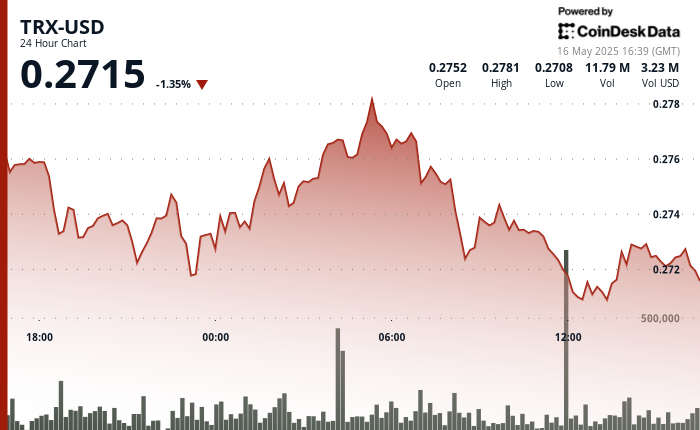Why Emerging Economies Need Strategic Crypto Reserves


As economies around the globe navigate the evolving financial landscape, the importance of strategic crypto reserves for emerging nations comes into focus. Consider nations like India, Brazil, Indonesia, South Africa, Nigeria, Thailand, and Vietnam; collectively representing a significant portion of the world's population and economic output. These countries are exposed to various external economic challenges such as currency fluctuations and trade disturbances.
Traditionally reliant on assets like gold and foreign currencies to safeguard their financial stability, these countries now face a rapidly changing digital world where cryptocurrencies offer a new layer of protection. While Bitcoin stands out as a prominent example in this realm, the broader spectrum of cryptocurrencies also demonstrates resilience and potential. Despite initial skepticism and regulatory hurdles, cryptocurrencies have proven their durability through wars, crises, and market fluctuations.
Acknowledging the risks inherent in any financial system is crucial; however, with smart regulation in place – exemplified by countries like Singapore or Switzerland – these risks can be mitigated. Diversification remains a fundamental principle in financial management; hence overlooking digital assets like cryptocurrencies could imply missing out on valuable opportunities for economic protection.
Contrary to being merely speculative assets, cryptocurrencies serve tangible purposes in today's economy. Major corporations now accept digital currencies for transactions while decentralized finance protocols show promising growth. By embracing digital assets within their reserves judiciously—like early adopters such as the U.S. or El Salvador—emerging economies position themselves strategically for future economic uncertainties.
Why Emerging Economies Need Strategic Crypto Reserves
As countries like the U.S. and El Salvador buy bitcoin, yours should too.
Anurag Arjun, known for his entrepreneurial endeavors spanning diverse industries from lending to blockchain technology, stresses the significance of forward-thinking strategies in this ever-evolving landscape. With his latest venture Avail within the Polygon ecosystem focusing on scalable applications on Ethereum blockchain technology as a testament to his commitment towards advancing blockchain innovation.

In essence, emerging economies are at a crossroads where proactive steps towards integrating digital assets into their reserve portfolios can pave the way for enhanced economic resilience. As the digital revolution unfolds rapidly worldwide, embracing cryptocurrencies not only diversifies but also strengthens their financial standing against unforeseen challenges down the road.
Cryptocurrencies aren’t an experiment anymore. While Bitcoin is the most widely adopted, making it the primary example in this discussion, the broader argument applies to cryptocurrencies as a whole. The Bitcoin network has been operational for over 99.98% of the time since its inception in 2009. Cryptocurrencies have survived wars, regulatory crackdowns, and multiple financial crises. Over the last decade, bitcoin has appreciated nearly 200X, far outpacing tech giants like NVIDIA or Apple.
The crypto space, no denying, has faced scams, rug pulls, and bad actors. This is common in virtually any financial system — think early stock markets or banking. That’s why smart regulation is critical. Countries like Singapore, Japan, and Switzerland have already struck a balance between consumer protection and innovation, offering models for others. But these risks don’t negate crypto’s core appeal — they demand careful governance.
Diversification is key. Ask any central banker, fund manager, or financial advisor: you don’t put all your eggs in one basket, and you certainly don’t bet the future of an economy on a single asset class. In a world that’s rapidly digitizing, ignoring digital assets like cryptocurrencies is a mistake. These assets tend to have little correlation with how other traditional assets perform, making bitcoin a strong hedge against economic turbulence.
Bitcoin isn’t the new digital gold — it serves a very different role. In many cultures, more so in mine, we Indians love our gold. We hoard it, gift it, and trust it as a store of value. Central banks across the world have been buying gold at a record pace in recent years. But gold wasn’t always the safe bet we think it is today — back in the 1980s, its price crashed by 60% before bouncing back.

Critics often dismiss crypto as mere speculation, but its utility is real. Major companies like Microsoft and Starbucks now accept bitcoin and stablecoins for transactions. U.S. bitcoin ETFs have attracted over $12 billion in institutional inflows within months. Crypto enables faster, cheaper remittances, cutting global fees from 6.4% to under 1%, saving billions for developing economies. With over $100 billion locked in DeFi protocols, it’s clear that the future of finance is already being built on blockchain.
Emerging economies should take a strategic, forward-looking step toward economic resilience. A 1-2% allocation in digital assets is smart, not a gamble. Track its performance, take cues from early movers like the U.S., El Salvador, and Strategy, and refine the approach as you go. Encourage financial institutions to experiment with crypto-backed financial instruments in a limited way. Proactive regulatory frameworks are vital to foster innovation while ensuring stability.
Emerging economies can start building a strategic reserve today or hear in five years at another dinner party in five years, “If only we had bought bitcoin in 2025.” The time is now.
Anurag Arjun, co-founder of Avail, is a seasoned entrepreneur who has founded several successful startups across diverse industries, ranging from cash flow lending to regulatory tech. With a strategic move into the blockchain space in 2017, he co-founded Matic Network, which has since evolved into Polygon, a platform for scaling Ethereum. In 2020, Anurag spearheaded the development of Avail, an innovative solution within the Polygon ecosystem that empowers developers to create fast, efficient, and scalable applications. As a pioneer with a background spanning research, economics, and engineering, Anurag's unique skill set has been invaluable in creating Avail and the broader blockchain community. In March 2023, he and co-founder Prabal Banerjee spun off Avail from Polygon to embark on a journey to empower rollup and application blockchain communities with the development of a unification layer that enables modular execution layers to scale and interoperate in a trust-minimized way. With an unwavering commitment to realizing the full potential of modular blockchain technology, Anurag is excited to leverage this cutting-edge approach to maximize Avail's impact. His expertise and vision continue to drive Avail's success and position the company at the forefront of the blockchain revolution.



